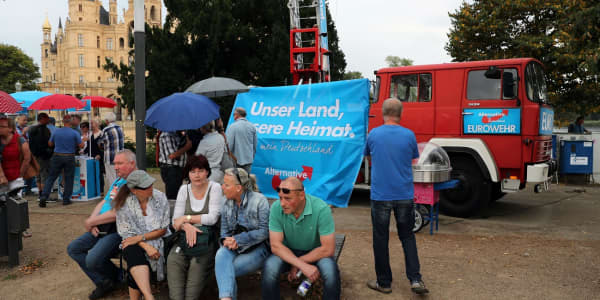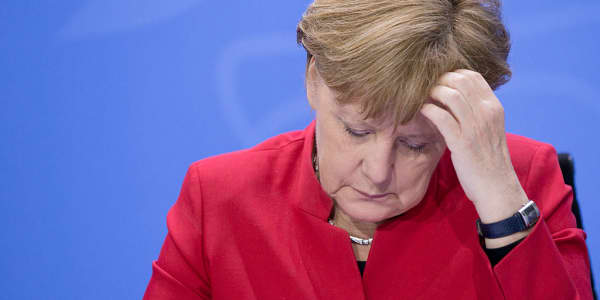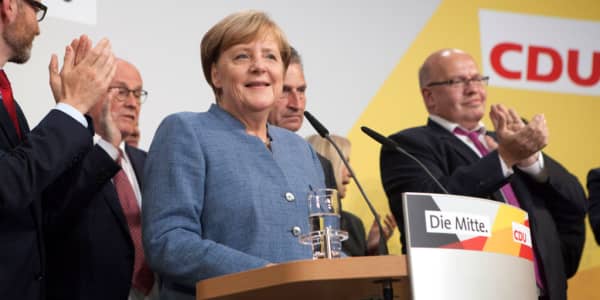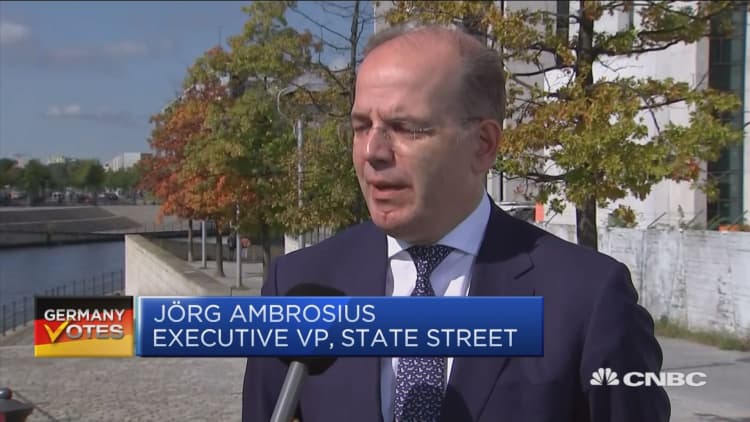
Angela Merkel is likely to be re-elected as Germany's chancellor for a fourth term in an election next Sunday, a result that could seal the continent's fate in terms of ever closer political and economic union.
If voter polls are to be believed, pro-European Merkel's victory is assured with her conservative coalition ahead of the pack. The latest voter poll published on Sunday by the Bild am Sonntag newspaper showed Merkel's conservative CDU-CSU coalition with 36 percent of the vote, ahead of rival SPD party which was seen with 22 percent of the vote. In third place was the anti-immigration AfD party with 11 percent of the vote.
Jörg Ambrosius , the managing director of State Street Bank International, told CNBC on Monday that the election was "a very important election for the future of Europe."
"My personal view is that there is now a time window opening when Germany and France could renew this French-German axis that drove the European agenda for quite some time in the past and I think now, with the economic recovery - and in the light of Brexit - there is a unique chance to bring the European Union, and financial union, to the next level."
- either repeating the same tried and tested "grand coalition" with the SPD or forming a new alliance with the smaller pro-business FDP party and Greens in a so-called "Jamaica coalition," so named due to the colors of the political parties involved.
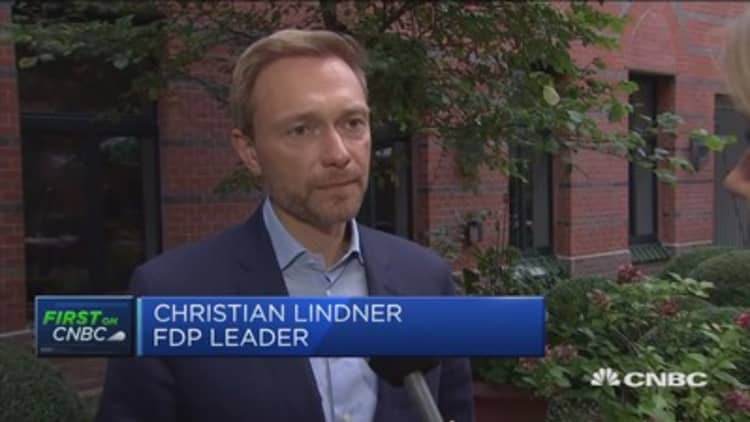
Whatever the make-up of an eventual coalition - following negotiations that could take months - Europe's political establishment are likely to breathe a collective sigh of relief as long as is left out in the cold.
Closer union?
For many pro-Europeans, Merkel's re-election could herald a new era of ever closer political and economic integration in the region, especially given her support of French President Emmanuel Macron's calls for reforms.
Earlier this year, Macron and Merkel agreed in principle to create a European finance minister, euro zone parliament, a common euro zone budget and more public investments, as well as a more coordinated effort on reforms.
While reforms are welcomed generally, the idea of a pan euro zone finance minister and budget has not gone down so well in all quarters. For one, Germany's Finance Minister Wolfgang Schauble said in May that Macron's ideas were "unrealistic" as they would require EU treaty changes, and suggested instead developing the existing European Stability Mechanism, the euro zone's bailout fund. In addition, the leader of one of Merkel's potential coalition partners, the FDP, also told CNBC on Saturday that proposals for a euro zone budget were "unimaginable."
While Ambrosius agreed that it was "a bit premature" to talk about a European finance minister, he said that the most important thing to recognize about the election was that there was "very limited risk" of a shock result.
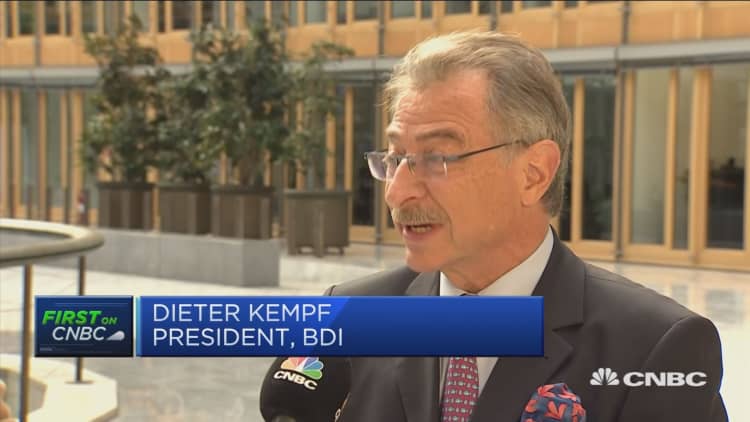
"It's important to state that what we can expect now is the fourth election where the pro-European parties will win and I think this would have been the largest risk that the election could've gone off track but I think there's a very high chance that this will not be the case," he said.
Many businesses seeking stable leadership and a continuation of the status quo would also welcome a Merkel re-election, but there are growing calls for more investment within the country and attempts to attract outside investors. Bernhard Mattes, president of the American Chamber of Commerce in Germany, told CNBC on Monday that business partners he's spoken to just hope for reforms.
"All other business partners I'm talking to don't see a risk in the elections, they rather see a hope that reforms that are still necessary for the future will take place, that we will have the investments in infrastructure, not only in streets and rivers etc but in the digital infrastructure for the future, they have a strong hope in tax reforms for the future to make the economy stronger here and to make Germany more attractive (to investors)."




